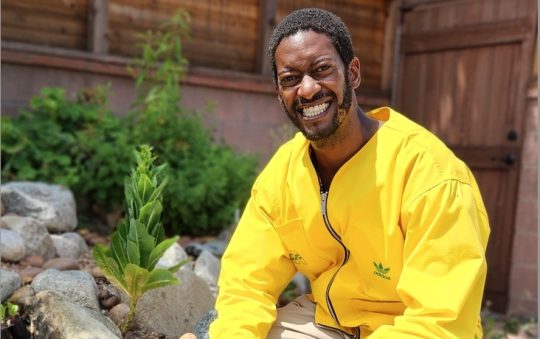
Juneteenth was celebrated last month with African Americans cooking soul food, dancing and spending time with family. But what is Juneteenth and why do we celebrate it?
Juneteenth occurs every year on June 19 and it marks the day slavery ended in the United States. The holiday originated in Texas when Union soldiers announced President Abraham Lincoln’s executive order to end slavery in the city of Galveston in 1865. The order became official two years prior, but the state of Texas did not comply with the order due to lack of Union Soldiers, according to the National Juneteenth Register.
In celebration of the historic date, African Americans in Texas would celebrate this day by gathering together and having large community potlucks.
“Historically, it’s something that people of color have done, it’s been passed down through the families,” said Tonyia Turner, 70, who has lived in the Los Angeles for 45 years. “I like celebrating and going out where the festivities are.”
Soul food, including chitterlings, sweet potato pie and jalapeno cornbread would be served. People would make large amounts of Watermelon juice, according to Nzingha Dugas, Director of the African American Student Development at the University of California, Berkeley.
“They would reenact the celebration of how enslaved Africans pretty much understood that they were free,” said Dugas. “It was super joyful and people were just leaving plantations.”
Knowledge of the event gets passed down verbally from generation to generation. Dugas did not know about the origins of Juneteenth until her Texas-born mother told her the meaning.
“She just began to tell these elaborate stories about these great celebrations that they would have all over Texas,” said Dugas.
Darryl Everage, a social worker in the Department of mental health, also talked to his children about Juneteenth.
“I also taught them the significance of that date and what it meant and we always tried to somehow at least acknowledge the date if not participate in some celebration,” said Everage.
African Americans throughout the United States celebrate Juneteenth with large picnics, music, and festivals. At Leimert Park, there will be a Juneteenth festival lasting for two days starting on June 20.
“In Leimert Park, they have festivities where they play music,” said Homer Bradford,60.
Cities in Northern California, like San Francisco and Berkeley, also have festivals. Those festivals highlight black-owned businesses, according to Dugas.
“They are vendors, but they are creating their own wares,” she said. “Like Kwanzaa, Juneteenth is like celebrated in so many different places now,”
The state of Iowa had a statewide Juneteenth Observance Essay Contest. The first place winner received $1,000, according to the Sioux City Journal. In Syracuse N.Y. there was a parade on June 13, requiring streets to shut down for the event, according to the Syracuse Media Group.
Citizens of Los Angeles have mixed feelings and a mixed knowledge of the holiday. Some know about it, some choose not to celebrate it and some had little to no knowledge of the holiday.
Michelle Blackwell, a recent masters graduate from Cal State Los Angeles, is unsure of the significance in the 21st century.
“How are we together? What independence are we celebrating?” said Blackwell. “I would really have to go back and look at it historically.”
Ashley Linton, 21, and Denisha Harrison, 18, was not informed about the holiday.
“I feel very bad that I didn’t know that,” said Linton.
Harrison, who just graduated from high school, talk about how she never learned about Juneteenth in her classes.
“I never heard about it in school,” said Harrison. “We don’t always talk about African American [history] unless it is during February.”
Donza Robinson,47, a Cleveland native, did not learn about the event until he became an adult.
“I first became aware of the holiday back in 1992 when I used to live in Atlanta, Georgia,” said Robinson. “When I was living in Atlanta, Georgia, they had a lot of Black historical events going on.”
This year will mark the 150 anniversary of the liberation of the slaves in Texas. Juneteenth still remains an event that promotes harmony in the Black community. For Turner, the celebration is like a family reunion.
“I’ve never been to a family reunion,” said Turner. “Juneteenth has always been a time for me to get out there and feel like I’m part of a family.”






